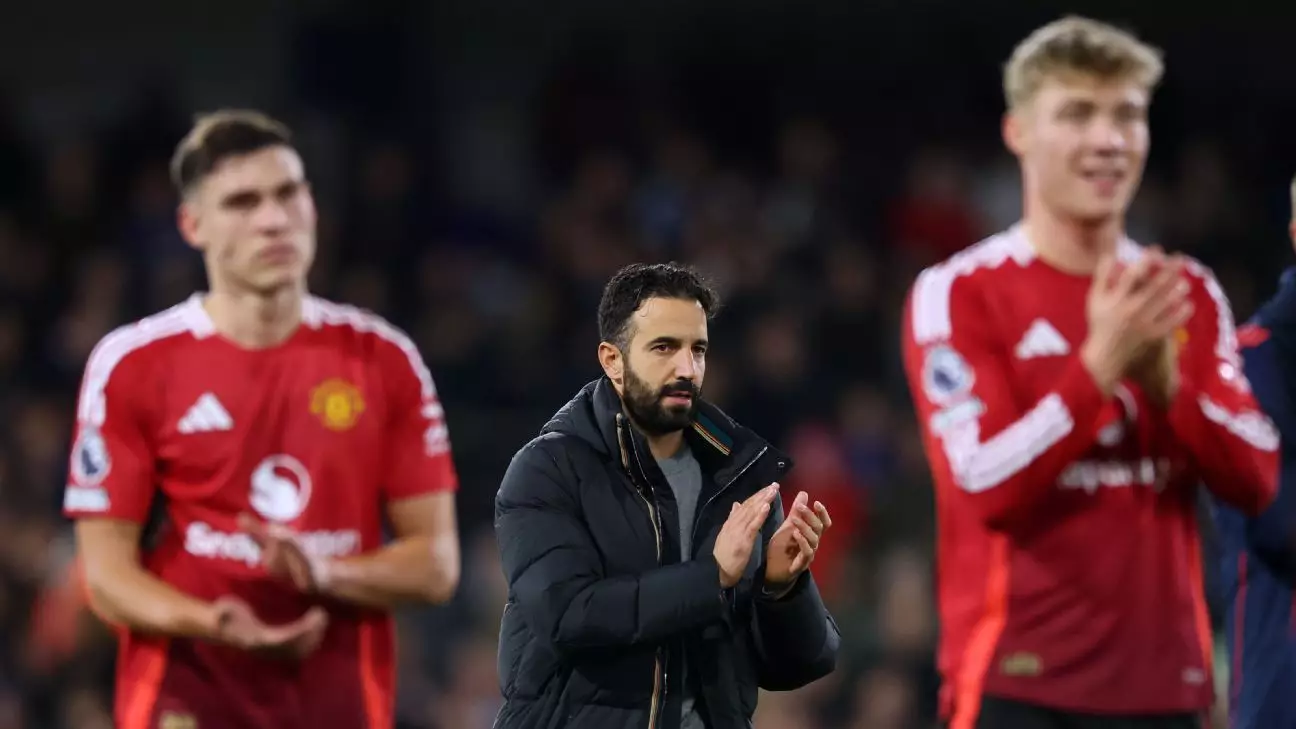The recent appointment of Rúben Amorim as the head coach of Manchester United has stirred a mix of anticipation and apprehension among fans and critics alike. Following his debut match, a 1-1 draw against Ipswich Town, Amorim articulated his vision for the club’s revival but cautioned that the path to success involves significant turmoil and patience. Understanding Amorim’s perspective is crucial not only for fans but also for the team’s future trajectory.
In his inaugural match, Manchester United enjoyed a lively beginning, with Marcus Rashford scoring within 81 seconds. Yet, the 1-1 tie was a stark reminder that the team is in a state of flux. Omari Hutchinson’s equalizer highlighted defensive frailties, which could have deeper implications if not addressed promptly. United’s goalkeeper, André Onana, stood as a temporary shield, delivering crucial saves, reflecting the immediate pressures the players face.
Amorim, having joined the club from Sporting CP, was thrust into a challenge without the luxury of a prolonged pre-season to instill his tactical philosophy. The introduction of his preferred 3-4-2-1 formation was ambitious given the limited time. He admitted that his players were struggling to adjust, often overthinking their responsibilities on the field. This situation underscores the importance of gradual adaptation within a new system.
Principles Over Pain: The Coach’s Commitment
Despite the early setbacks, Amorim is resolute in adhering to his principles, even when the plan involves short-term suffering. He openly acknowledges the frustration fans experience as the squad undergoes extensive changes. However, he emphasizes the inevitable learning curve that accompanies such a transition. Recognizing the complexity of football tactics, he understands that the players’ previous habits under former manager Erik ten Hag complicate their adaptation.
Amorim’s take on the team’s current state is refreshingly candid. He speaks about the necessity of balancing immediate results with the implementation of a long-term vision. “We have to win games, but we could lose if it was not for Onana,” he noted, illustrating the precarious nature of their current play. His methodical approach aims to establish a solid structure—one that can ultimately elevate the club’s performance.
One of Amorim’s primary tasks is reshaping players’ mindsets to fit his system. As he pointed out, the changes demanded from players like Diogo Dalot are not merely tactical but fundamentally about altering their mental framework. Immense changes to established roles can disorient players but are essential for the team’s evolution. Amorim’s insistence that Dalot reassess his positioning speaks volumes about the broader systemic adjustments underway.
Amorim’s commentary on structure is particularly telling; he understands that players need time to fully grasp and internalize their new roles. Before that can happen, a significant mental shift must occur. The challenge lies not just in teaching new tactics but in ensuring players can execute them without hesitance. His focus on instilling structure is vital for long-term success, but it also raises questions about how to handle short-term results.
As Manchester United faces a grueling calendar of matches across various competitions, Amorim has recognized the pressing need for squad rotation. He understands that while securing results is paramount, the players must also dedicate time for training sessions that hone the new tactical systems. This dual approach of balancing match readiness with training effort can prove daunting but is necessary for the team’s development.
Amorim’s strategic foresight suggests that he is prepared for the inevitable ups and downs of managing a storied club like Manchester United. Acknowledging that not all players will be able to participate in every game allows him to dedicate specific periods for training, thus optimizing the learning process for the entire squad might lead to greater collective understanding.
Rúben Amorim’s tenure at Manchester United will require both patience and perseverance. His commitment to reshape the squad’s tactical approach, despite initial challenges, signals a long-term vision for success. Fans must manage their expectations as the team navigates this transitional phase, understanding that suffering in the short term could lead to brighter days ahead.
As Amorim grapples with the realities of his new role, the journey may be arduous, but the potential for growth and revitalization under his guidance remains promising. Embracing the elegance of structure and the intricacies of game strategy might just pave the way for Manchester United’s resurgence on the football stage.

Leave a Reply